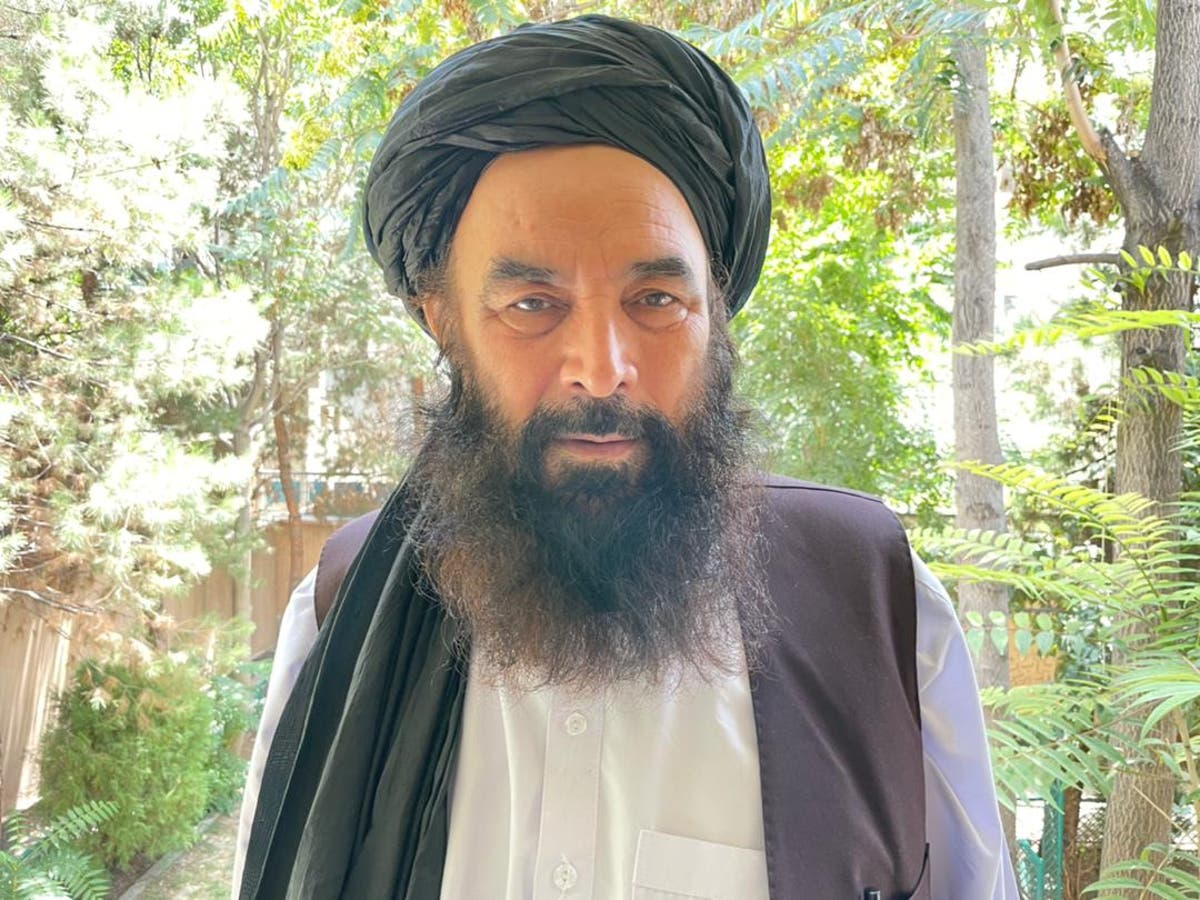Former Taliban commander warns of ‘years’ of fighting, if Kabul seeks military solution to conflict

A former Taliban commander has told The Independent there should be a negotiated settlement to the war currently raging in Afghanistan to prevent “years” of fighting.
“The Taliban can win victory, we can see how much of the country they already control, the army and the police are throwing away their guns and the people are welcoming them,” Syed Mohammad Akbar Agha said from his home in Kabul.
“But that would mean more fighting in Afghanistan for years, so we obviously need a negotiated government.”
It was inevitable, the former Taliban commander maintained, that provinces in the south like Helmand will fall to the Islamist group, if the government of Ashraf Ghani continues to seek a military solution.
“The government’s policy is being directed by a very small group of men in Kabul. Outside it is being driven by the old warlords with government support. The Americans have left, but they continue to send planes from other countries to carry out bombing, that is not a winning formula”, he insisted.
Mr Agha describes himself as someone no longer active in the Taliban and holds that he is among a group of elders trying to bring about a negotiated settlement to the conflict, one that has taken on a new ferocity since the hasty departure of US led international forces on President Joe Biden’s orders.
Mr Agha, a cousin of the chief of staff to Mullah Omar, the head of Afghanistan’s last Taliban regime, has been to Doha to advise the Taliban delegation which had been holding talks with the US and now the Afghan government. As he spoke about the negotiations, a member of the delegation called from the Qatari capital to clarify a sticking point between the two sides.
The former head of Jaish-e-Muslimeen, who fought against both Russian and American forces in his country, insists that the days when he took up arms are behind him.
But the past impacts on his present life. Guards carrying Kalashnikov AK-47s protect his home around the clock following a number of attempted attacks.
The area where Mr Agha lives has become known for bouts of violence, and there was a lethal example of that the day we met. Four hours later gunmen shot dead Mohammad Malakzai, a former administrative head from Wardak province, a few streets away.
A few hours after that there was greater carnage in another part of the city when a suicide bomber and a squad of gunmen carried out an attack in which 13 people were killed and 20 injured.
As the Taliban made rapid recent advances, attempting to storm three cities – Kandahar, Herat and Lashkar Gah – after seizing countryside districts, the US has stepped up air strikes in an attempt to halt the advance.
The insurgents have suffered large scale casualties, but claim that the bombing has been taking large numbers of civilian lives.
The US has left its air bases in Afghanistan, and the current air strikes have been “over the horizon” from other countries.
Two years ago, while about to go on a trip to the Doha talks, Mr Agha told me “the Taliban will not agree to one single foreign solider staying behind. The Americans have talked about some bases, but that is not acceptable. The Taliban is already preparing forces who can fight whoever necessary”.
Some of the civilian deaths caused by US air strikes, Mr Agha acknowledges, may have been due to lack of western boots on the ground.
“They do not have people directing [strikes] and the equipment perhaps, to get accurate information: that could have led to those deaths of innocent people” he said.
“So the answer is to stop the bombings. They certainly won’t be allowed to get back here, that time has long gone, and we don’t think they want to come back either.”
Agha at his home in Kabul (Aleem Agha (no relation))
The west made a big mistake, Mr Agha held, when it thought the Taliban were defeated following the intervention by US and British forces. The Afghan government is making a mistake now, he held, in believing that US military support will continue indefinitely.
“I was confident from day one that the Taliban will not disappear after 2001. The Taliban stayed strong because the government the Americans put in place was corrupt and they and the Americans were targeting innocent people. People were being arrested simply because they knew someone who was a Taliban,” he said.
“Let’s not forget that the Qatar talks were started at the request of the Americans. They didn’t want to face the same consequence the Russians ended up facing, they did not want to be humiliated, a face-saving formula for everyone would be proper negotiations.”






